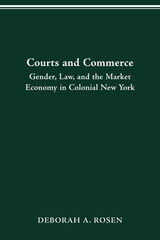
The First Seminole War of 1816–1818 played a critical role in shaping how the United States demarcated its spatial and legal boundaries during the early years of the republic. Rooted in notions of American exceptionalism, manifest destiny, and racism, the legal framework that emerged from the war laid the groundwork for the Monroe Doctrine, the Dred Scott decision, and U.S. westward expansion over the course of the nineteenth century, as Deborah Rosen explains in Border Law.
When General Andrew Jackson’s troops invaded Spanish-ruled Florida in the late 1810s, they seized forts, destroyed towns, and captured or killed Spaniards, Britons, Creeks, Seminoles, and African-descended people. As Rosen shows, Americans vigorously debated these aggressive actions and raised pressing questions about the rights of wartime prisoners, the use of military tribunals, the nature of sovereignty, the rules for operating across territorial borders, the validity of preemptive strikes, and the role of race in determining legal rights. Proponents of Jackson’s Florida campaigns claimed a place for the United States as a member of the European diplomatic community while at the same time asserting a regional sphere of influence and new rules regarding the application of international law.
American justifications for the incursions, which allocated rights along racial lines and allowed broad leeway for extraterritorial action, forged a more unified national identity and set a precedent for an assertive foreign policy.

In Courts and Commerce, Deborah A. Rosen intertwines economic history, legal history, and the history of gender. Relying on extensive analysis of probate inventories, tax lists, court records, letter books, petitions to the governor, and other documents from the eighteenth century—some never before studied—Rosen describes the expansion of the market economy in colonial New York and the way in which the law provided opportunities for eighteenth-century men to expand their economic networks while at the same time constraining women's opportunities to engage in market relationships. The book is unusual in its range of interests: it pays special attention to a comparison of urban and rural regions, it examines the role of law in fostering economic development, and it contrasts the different experiences of men and women as the economy changed.
Courts and Commerce challenges the idealized image of colonial America that has dominated historiography on the colonial period. In contrast to scholars who have portrayed the colonial period as a golden age for communal values and who have described nineteenth-century developments as if they had no eighteenth-century precedents, Rosen demonstrates that the traditionally described communal model of eighteenth-century America is a myth, and that in many ways the two eras are marked more by continuity than by change.
Deborah Rosen demonstrates that a market economy based on arm’s-length relationships did not suddenly emerge in the nineteenth century but already existed during the eighteenth century; that women became marginalized from the economy well before industrialization sent their husbands off to factories; and that the law shaped economic development a century or more before judges began to redefine the substance of the law to protect manufacturers and railway owners against expensive lawsuits by injured employees, neighbors, and consumers.
This bold and thought-provoking work will find a welcome audience among scholars of colonial American history, economic, social, and legal history, and women's studies.
READERS
Browse our collection.
PUBLISHERS
See BiblioVault's publisher services.
STUDENT SERVICES
Files for college accessibility offices.
UChicago Accessibility Resources
home | accessibility | search | about | contact us
BiblioVault ® 2001 - 2024
The University of Chicago Press









